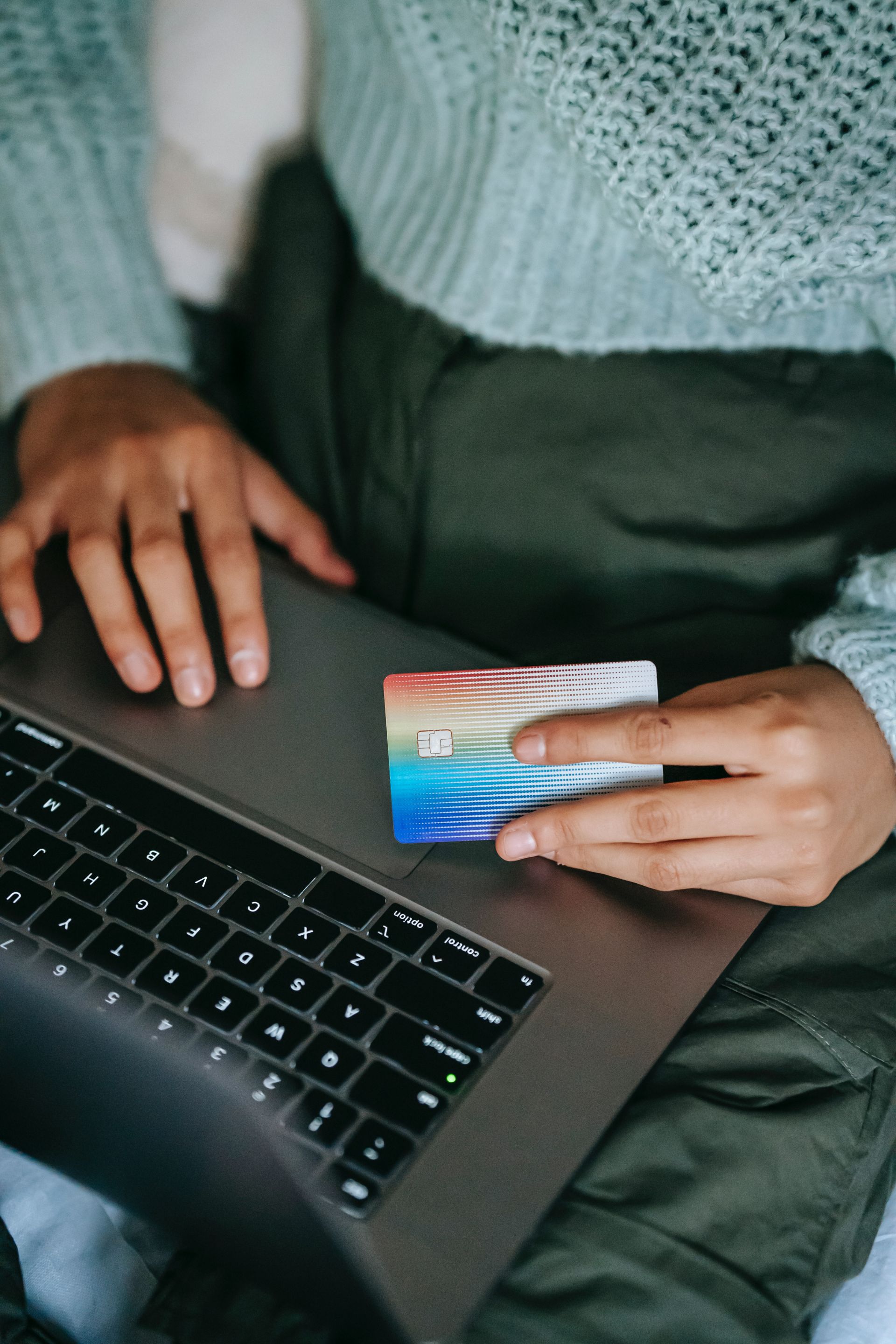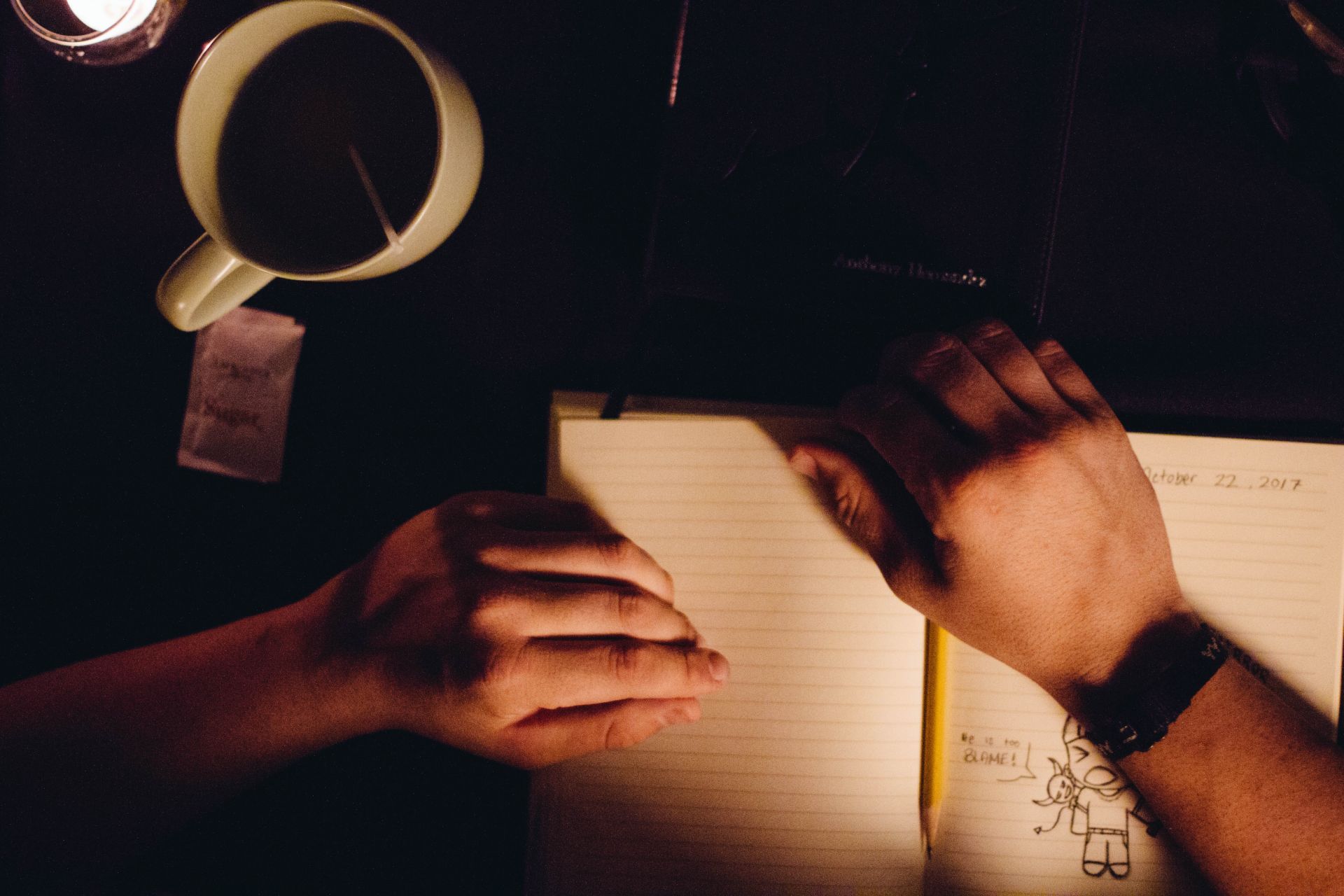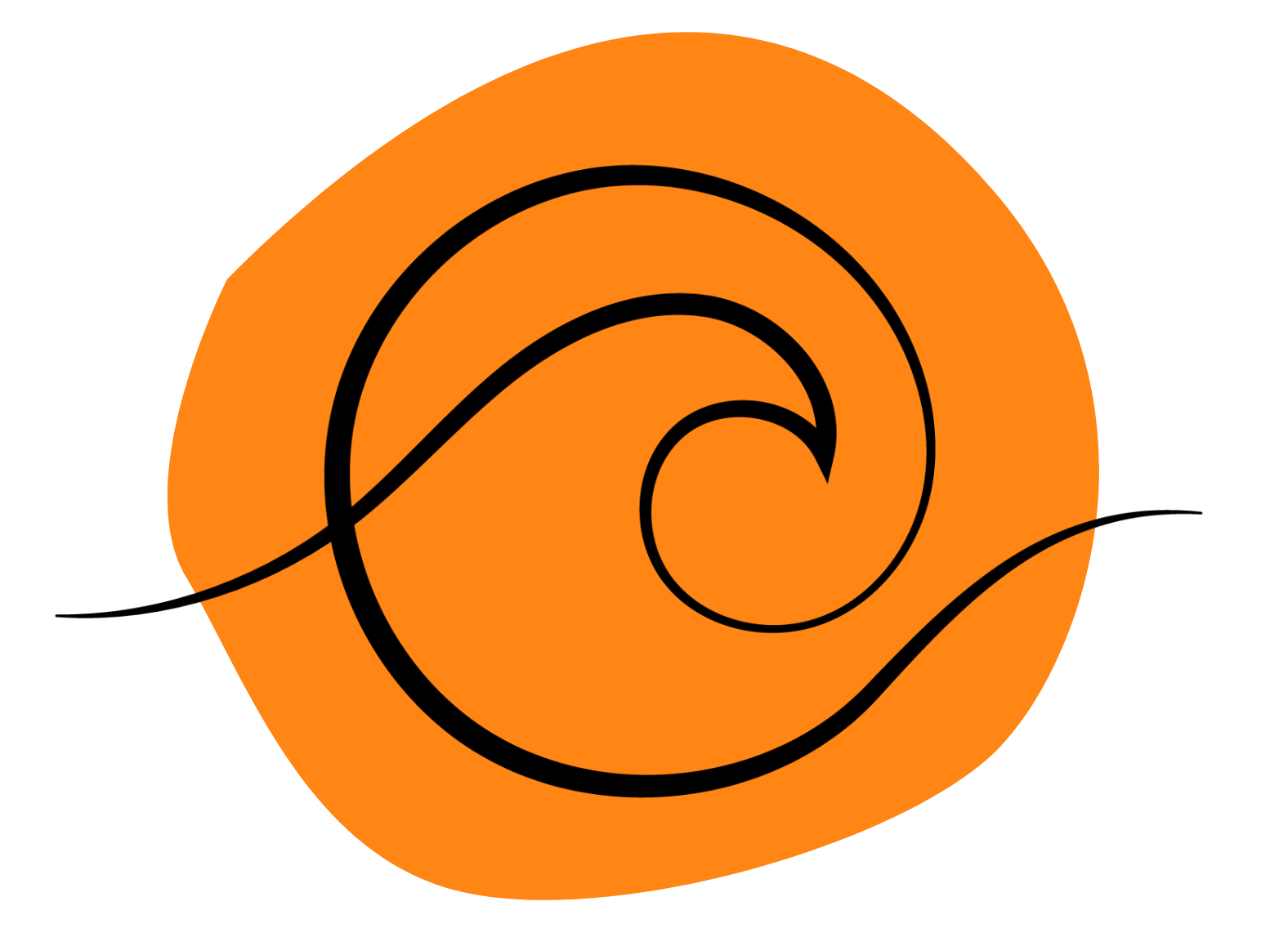The doorbell rings and I jump with excitement. What is it this time?! Any excuse to leave the four walls of my dining-room-come-home-office where I’ve just come off the third Zoom call of the day.
I open the door and give the retreating, masked delivery person a nod and a wave. This might be the closest I get to actual human contact today and I savour the moment. I look down and see not one, not two, but three brown boxes in my porch. One must be the resistance bands I ordered on Amazon Prime yesterday; I’m definitely going to use them, starting tomorrow. I have no idea what the other two are.
The anticipation feels like Christmas…..
I open the door and give the retreating, masked delivery person a nod and a wave. This might be the closest I get to actual human contact today and I savour the moment. I look down and see not one, not two, but three brown boxes in my porch. One must be the resistance bands I ordered on Amazon Prime yesterday; I’m definitely going to use them, starting tomorrow. I have no idea what the other two are.
The anticipation feels like Christmas…..

Many of us found our online shopping habits increase exponentially during the pandemic
Sound familiar? You are not alone. As Covid-19 kept us all locked down in our homes over the last year, many of us found our online shopping habits increase exponentially, and even as we ease our way out of restrictions the habit can hold fast. There is barely a room in my house that doesn’t have empty boxes and packaging in it waiting to be recycled once I can face the queue at the tip. I even bought some boxes to keep the boxes in to provide some semblance of order (one of my most satisfying purchases!) But aside from the boredom of lockdown combined with the ease of online shopping making a daily trip to the Amazon app inevitable, there is potentially a more scientific explanation for this behaviour, and it has to do with what psychologists refer to as basic psychological needs.
Everyone is familiar with the notion of basic needs being the things we require as human beings to simply stay alive – namely food and water, with shelter and warmth following close behind. But psychologists have discovered that there are also some basic psychological needs that act as essential nutrients for us to thrive. These are thought to be innate to all humans across cultures and societies, and we can no better thrive if two are met but one is missing than we can survive with food but no water. The pandemic has seen a sharp increase in loneliness, boredom, stress, anxiety, depression and even post-traumatic stress syndrome brought about by lockdowns, and it could be that the thwarting of these three psychological needs plays a significant role.
Sound familiar? You are not alone. As Covid-19 kept us all locked down in our homes over the last year, many of us found our online shopping habits increase exponentially, and even as we ease our way out of restrictions the habit can hold fast. There is barely a room in my house that doesn’t have empty boxes and packaging in it waiting to be recycled once I can face the queue at the tip. I even bought some boxes to keep the boxes in to provide some semblance of order (one of my most satisfying purchases!) But aside from the boredom of lockdown combined with the ease of online shopping making a daily trip to the Amazon app inevitable, there is potentially a more scientific explanation for this behaviour, and it has to do with what psychologists refer to as basic psychological needs.
Everyone is familiar with the notion of basic needs being the things we require as human beings to simply stay alive – namely food and water, with shelter and warmth following close behind. But psychologists have discovered that there are also some basic psychological needs that act as essential nutrients for us to thrive. These are thought to be innate to all humans across cultures and societies, and we can no better thrive if two are met but one is missing than we can survive with food but no water. The pandemic has seen a sharp increase in loneliness, boredom, stress, anxiety, depression and even post-traumatic stress syndrome brought about by lockdowns, and it could be that the thwarting of these three psychological needs plays a significant role.
So what are these needs?
They may sound familiar to some of you: Autonomy, Competence and Relatedness.
Autonomy relates to being able to choose what you do.
Competence is about feeling effective and capable.
Relatedness refers to feeling connected to others.
It doesn’t take much to see how these needs are being frustrated during the pandemic. Being instructed to behave in certain ways by our governments (stay at home, wear a mask, wash your hands) takes away our autonomy; losing our jobs, being put on furlough or being asked to work in very different ways affects our sense of competence; and being made to socially distance and not see our family and friends impacts our relatedness. This has had such an impact on our health during the pandemic that some research has even found optimists – who typically fare well during times of adversity due to their positive mindset – have been also affected by poorer mental health through not having their basic psychological needs met. For psychologists, who usually look to optimists to learn about what makes people resilient, this is significant.
So where does my newly acquired Amazon addiction come in?
The human brain is highly adaptive and, in situations where something is lacking, it is very adept at finding new ways of doing things (people who lose their sight, for example, often find new ways to understand the world around them via the other senses). When a psychological need is lacking and the environment doesn’t offer a way to have it easily met, we may substitute that need with something more tangible and easily available. In other words, we might replace the need for competence that is lacking due to being on furlough, with the need for a new pair of crocs or a table-top table tennis set, easily available with the swipe of a finger. This may sound flippant, but it’s a behaviour that has been observed in many settings from prisons to city slums: when we can’t get our psychological needs met we turn to material goals to feel satisfied. The danger with this is that the reward we get from these material gains is short-lived and so we need to seek it again, and again, and again. This is what psychologists call the hedonic treadmill, and it can be tricky to get off.
They may sound familiar to some of you: Autonomy, Competence and Relatedness.
Autonomy relates to being able to choose what you do.
Competence is about feeling effective and capable.
Relatedness refers to feeling connected to others.
It doesn’t take much to see how these needs are being frustrated during the pandemic. Being instructed to behave in certain ways by our governments (stay at home, wear a mask, wash your hands) takes away our autonomy; losing our jobs, being put on furlough or being asked to work in very different ways affects our sense of competence; and being made to socially distance and not see our family and friends impacts our relatedness. This has had such an impact on our health during the pandemic that some research has even found optimists – who typically fare well during times of adversity due to their positive mindset – have been also affected by poorer mental health through not having their basic psychological needs met. For psychologists, who usually look to optimists to learn about what makes people resilient, this is significant.
So where does my newly acquired Amazon addiction come in?
The human brain is highly adaptive and, in situations where something is lacking, it is very adept at finding new ways of doing things (people who lose their sight, for example, often find new ways to understand the world around them via the other senses). When a psychological need is lacking and the environment doesn’t offer a way to have it easily met, we may substitute that need with something more tangible and easily available. In other words, we might replace the need for competence that is lacking due to being on furlough, with the need for a new pair of crocs or a table-top table tennis set, easily available with the swipe of a finger. This may sound flippant, but it’s a behaviour that has been observed in many settings from prisons to city slums: when we can’t get our psychological needs met we turn to material goals to feel satisfied. The danger with this is that the reward we get from these material gains is short-lived and so we need to seek it again, and again, and again. This is what psychologists call the hedonic treadmill, and it can be tricky to get off.

If we know what’s causing it we can find ways to address it
But the good news is, there is a way to save both your bank balance and your wellbeing! As with much of psychology, if we know what’s causing it we can find ways to address it, and this is something positive psychologists in particular are excellent at doing. Very simply, in this situation, it’s about finding new ways to meet your psychological needs, and we know this instinctively as humans: the first lockdown saw a flurry of new hobbies being taken up all over the country opening up all kinds of new opportunities for autonomy, competence and relatedness needs to be met. But by the third lockdown you’d probably already baked enough banana bread to last a lifetime and couldn’t bring yourself to sit through yet another family Zoom quiz. Things are easing but we’re not out of the woods yet; now may be time for something with a more lasting impact.
Interestingly, what research has found is that it isn’t so much about finding new ways for our psychological needs to be met (as per the above, we’ve all experienced how exhausting this can become after a while) but about our perception of how well they are met. If we focus on bolstering this perception we can actually create a buffer between us and the stress of the pandemic, thus improving both our resilience and our wellbeing.
But how can this be done?
There’s a very simple exercise psychologists have found to have a real impact and I invite you to give it a go now:
Please think for a moment and write about a situation where, despite the restrictions of your lifestyle due to Coronavirus, you have been able to feel either some or all of the following:
(Adapted from a study by Cantarero et al., 2020 https://doi.org/10.1177/1948550620942708)
In effect, what the exercise does is helps you to focus on positive aspects of your current situation despite the difficulties experienced, in much the same way a gratitude journal might. It has been shown to have a positive impact on wellbeing during the pandemic after doing it just once, but it may be that repeating it provides a longer-lasting impact. Gratitude journaling, for example, (where you write down three things to be grateful for from the last 24 hours each night before bed) has been found to be more effective over time amongst those who do it once a week compared to every day, so the same might apply here.
Importantly, focusing positively on these needs in this way can help you identify areas of your daily life where you are more in control than you might generally feel, given the unpredictability of the pandemic. This sense of agency over positive aspects of your daily life can build better resilience and has even been linked to better immune functioning.
Seems like there’s little to lose in giving it a go.
But back to those two mystery boxes….one turned out to be a highly stylish yet ineffective loo brush, and the other was a set of badges I bought for my friend’s Zoom birthday party, which turned out to be in German. Two-nil to the hedonic treadmill. Think I’ll buy a notebook next and give that basic psychological needs journaling a go.
But the good news is, there is a way to save both your bank balance and your wellbeing! As with much of psychology, if we know what’s causing it we can find ways to address it, and this is something positive psychologists in particular are excellent at doing. Very simply, in this situation, it’s about finding new ways to meet your psychological needs, and we know this instinctively as humans: the first lockdown saw a flurry of new hobbies being taken up all over the country opening up all kinds of new opportunities for autonomy, competence and relatedness needs to be met. But by the third lockdown you’d probably already baked enough banana bread to last a lifetime and couldn’t bring yourself to sit through yet another family Zoom quiz. Things are easing but we’re not out of the woods yet; now may be time for something with a more lasting impact.
Interestingly, what research has found is that it isn’t so much about finding new ways for our psychological needs to be met (as per the above, we’ve all experienced how exhausting this can become after a while) but about our perception of how well they are met. If we focus on bolstering this perception we can actually create a buffer between us and the stress of the pandemic, thus improving both our resilience and our wellbeing.
But how can this be done?
There’s a very simple exercise psychologists have found to have a real impact and I invite you to give it a go now:
Please think for a moment and write about a situation where, despite the restrictions of your lifestyle due to Coronavirus, you have been able to feel either some or all of the following:
- Sense of autonomy (e.g., when you have been feeling a sense of choice and freedom in the things you are undertaking, however small)
- Sense of competence (e.g., when you have been feeling that you are able to achieve your goals, however minor)
- Sense of relatedness (e.g., when you have been feeling connected with people who care for you and for whom you care, wherever they are).
(Adapted from a study by Cantarero et al., 2020 https://doi.org/10.1177/1948550620942708)
In effect, what the exercise does is helps you to focus on positive aspects of your current situation despite the difficulties experienced, in much the same way a gratitude journal might. It has been shown to have a positive impact on wellbeing during the pandemic after doing it just once, but it may be that repeating it provides a longer-lasting impact. Gratitude journaling, for example, (where you write down three things to be grateful for from the last 24 hours each night before bed) has been found to be more effective over time amongst those who do it once a week compared to every day, so the same might apply here.
Importantly, focusing positively on these needs in this way can help you identify areas of your daily life where you are more in control than you might generally feel, given the unpredictability of the pandemic. This sense of agency over positive aspects of your daily life can build better resilience and has even been linked to better immune functioning.
Seems like there’s little to lose in giving it a go.
But back to those two mystery boxes….one turned out to be a highly stylish yet ineffective loo brush, and the other was a set of badges I bought for my friend’s Zoom birthday party, which turned out to be in German. Two-nil to the hedonic treadmill. Think I’ll buy a notebook next and give that basic psychological needs journaling a go.
author bio
Sarah Creevey
Sarah Creevey is a freelance coach and trainer in the UK. She specialises in wellbeing, including strengths-based coaching, resilience and communications skills.
She is currently also studying for her Masters in Applied Positive Psychology and looking forward to using this to make the world a better place some day.
Sarah spent lockdown with her husband and baby daughter at home in Surrey, building up a collection of packaging to be re-used one day.
Website: www.workbubbles.co.uk
Email: sarah@workbubbles.co.uk
She is currently also studying for her Masters in Applied Positive Psychology and looking forward to using this to make the world a better place some day.
Sarah spent lockdown with her husband and baby daughter at home in Surrey, building up a collection of packaging to be re-used one day.
Website: www.workbubbles.co.uk
Email: sarah@workbubbles.co.uk

